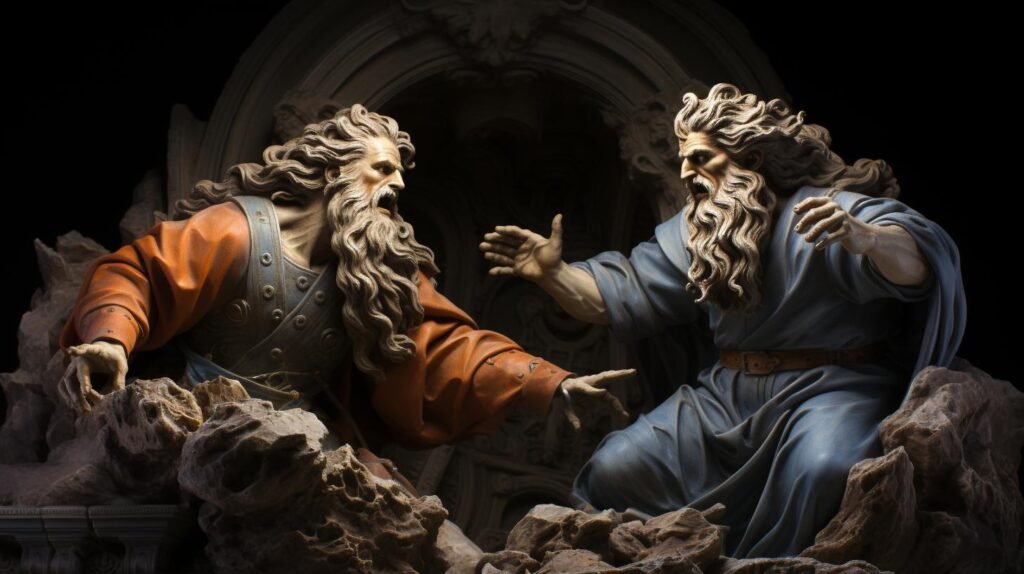In Greek mythology, Zeus and Hades are two of the most powerful and prominent gods. They play important roles in the Greek pantheon and are associated with the sky and underworld, respectively. However, there is speculation and debate surrounding their relationship and origin. Some theories suggest that Zeus and Hades could be twin brothers, adding an additional layer to their intricate family dynamics. In this article, we will explore this fascinating theory and examine the evidence that supports or challenges the idea that Zeus and Hades are indeed twins.
The Genealogy of Greek Gods
The genealogy of Greek gods is complex and filled with family intrigues. Zeus, the god of the sky and thunder, is the son of Cronus and Rhea. Hades, the god of the underworld, is also a child of Cronus and Rhea. Cronus was a Titan, and Rhea was a Titanide, making Zeus and Hades descendants of Titans.
The Possibility of Zeus and Hades being Twins
There are several interpretations and versions of Greek mythology that suggest Zeus and Hades could be twins. Some myths and stories depict them as being born simultaneously, which supports this theory. In Hesiod’s Theogony, it is mentioned that Zeus, Hades, and Poseidon were conceived and born together.
Stories Supporting the Idea of Zeus and Hades as Twins
The myth of the Titanomachy describes how the children of Cronus, including Zeus and Hades, joined forces to battle the Titans and claim power on Mount Olympus. In some versions of Zeus’ myth, it is mentioned that he and his siblings, including Hades, were devoured by Cronus shortly after birth, and then rescued and raised by their mother, Rhea. In the story of the cosmos’ division after the victory against the Titans, it is mentioned that Zeus obtained the sky, Poseidon the sea, and Hades the underworld, implying a special connection between the three brothers.
Arguments Against Zeus and Hades being Twins
Some interpretations of Greek mythology do not mention a simultaneous birth of Zeus and Hades, which may suggest that they are not twins. Different accounts also offer contradicting details about the genealogy and birth of Zeus and Hades, making it difficult to reach a definitive conclusion.
Influences and Symbolism of the Possible Relationship between Zeus and Hades
Beyond speculation about their fraternal connection, Zeus and Hades are intimately linked by their roles in the Greek pantheon. Zeus is known as the king of the gods and ruler of the sky, while Hades is the ruler of the underworld, and various mythological stories depict them collaborating or interacting. This possible twinhood would provide an explanation for their close cooperation in different legends and how they complement their respective roles in mythology.
The Cultural and Literary Significance of Greek Myths
Greek myths have been a source of inspiration for centuries and have influenced countless works of art, literature, and popular culture. Writers and artists have often reinterpreted Greek myths, adapting them to their own contexts and giving them new forms and meanings. The relationship between Zeus and Hades is an example of the versatility and richness of Greek mythology, which continues to fascinate and captivate modern audiences.
Conclusion
The question of whether Zeus and Hades are twins remains a topic of debate and speculation within Greek mythology. While there is evidence and narratives that support this theory, there are also discrepancies and contradictory versions. Regardless of their fraternal relationship, what is undeniable is the importance and impact of Zeus and Hades in Greek mythology, as well as their lasting influence on culture and the arts.
